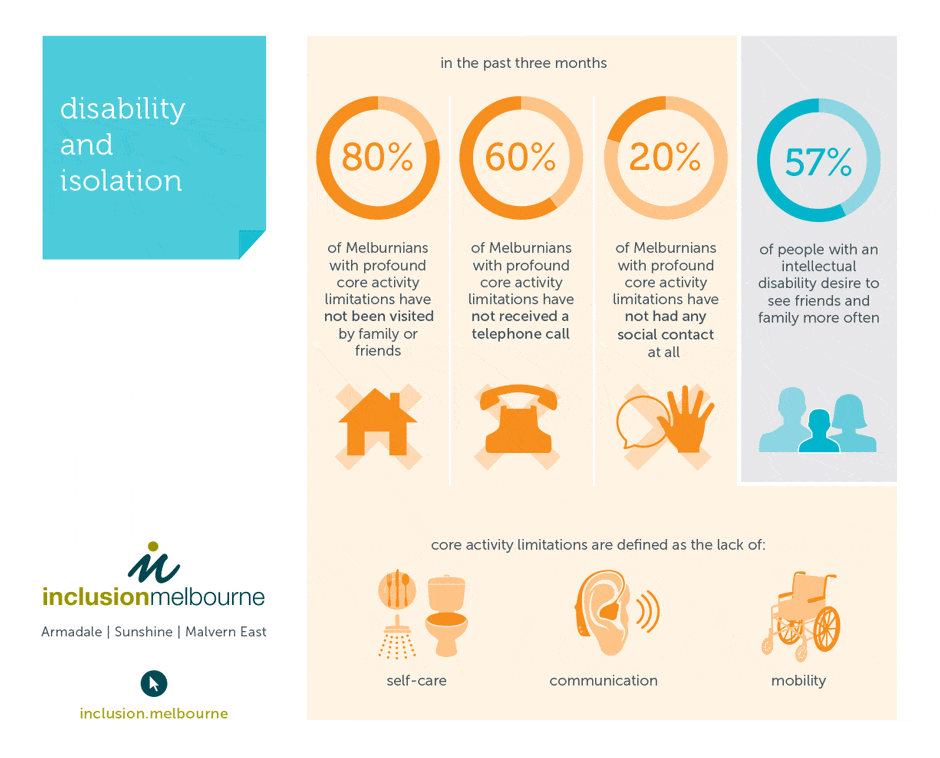Disability and Isolation
Dorelle and Heather have been close friends for over 10 years, and over that time their relationship has evolved, as many do, from one of polite acquaintance through to love and mutual trust.
What is noteworthy about Dorelle and Heather is that Dorelle is a retiree in her mid-seventies, and Heather, a fifty-year-old woman with severe intellectual disability who requires a wheelchair for mobility and does not communicate through speech.
In Australia, disability and social isolation too commonly go hand in hand. In survey results detailed in Deep and Persistent Disadvantage Report 2008, it was found that 80% of Melburnians with profound communication and mobility limitations had not been visited by friends or family in the three months prior to the survey; 60% had not received a phone call; and 20% had no social contact at all. These numbers are not due to a desire to be alone or isolated, the same study also found that 57% of people with an intellectual disability desired to see friends and family more often.
We know that being isolated and excluded has profound impacts on self-worth and self-esteem, and that people with a disability want to live in a society where they are not segregated as ‘those people with disabilities’.
When Dorelle retired from her high profile job, she considered volunteering as a way to avoid the social isolation that can come with no longer being part of a busy office, and approached Inclusion Melbourne to offer her time. While Dorelle initially considered that her volunteering would be of most benefit to the people she was helping and that all she would gain was to be keeping busy and active, what she found was that spending time with Heather actually reduced her own feelings of personal isolation and supported her sense of self-worth.
Dorelle gained the opportunity to be accepted by others, to matter to someone else, to give and receive affection and intimacy and to have someone to touch. Through volunteering and developing her friendship with Heather, Dorelle’s life has been enriched and she has become aware of her own skills and strengths.
What is important to understand is that people with disability do not want to be segregated or isolated. They want to be included, appreciated, and live fulfilling and meaningful lives contributing to their local community. For those volunteering, there are huge benefits outside of the obvious help that is being provided. There is also the opportunity to avoid their own social isolation, to develop new skills, to gain the satisfaction of knowing that they are making a difference in someone else’s life, and to feel the self-worth and self-esteem that comes from making a difference.



